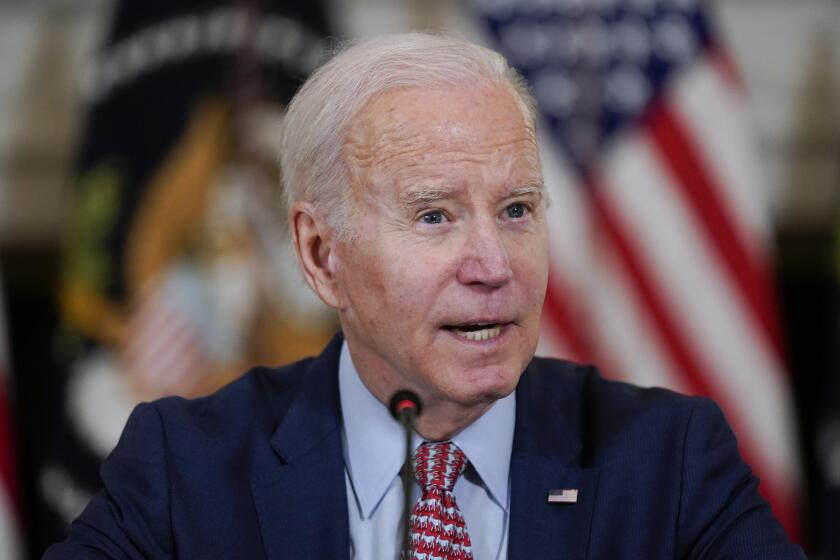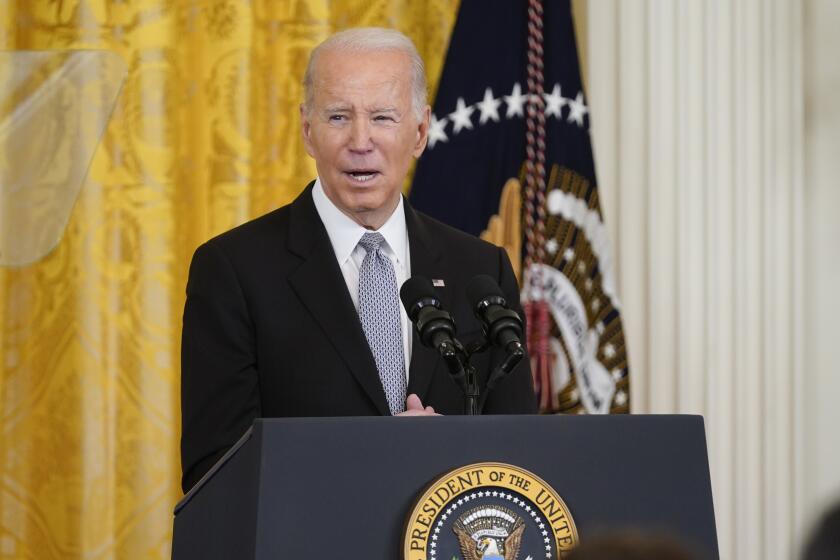Biden administration partners with 50 countries to stifle future pandemics

- Share via
WASHINGTON — President Biden’s administration will help 50 countries identify and respond to infectious diseases, with the goal of preventing pandemics like the COVID-19 outbreak that suddenly halted normal life around the globe in 2020.
U.S. government officials will offer support in the countries, most of them located in Africa and Asia, to develop better testing, surveillance, communication and preparedness for such outbreaks in those countries.
The strategy will help “prevent, detect and effectively respond to biological threats wherever they emerge,” Biden said in a statement Tuesday.
The Global Health Security Strategy, the president said, aims to protect people worldwide and “will make the United States stronger, safer, and healthier than ever before at this critical moment.”
Biden signs a bipartisan congressional resolution to end the national emergency response to the COVID-19 pandemic after three years.
The announcement about the strategy comes as countries have struggled to meet a worldwide accord on responses to future pandemics. Four years after the COVID-19 pandemic, the prospects of a pandemic treaty signed by all 194 of the World Health Organization’s members are flailing.
The Biden administration plans to move forward with its new strategy to prepare the world for the next pandemic, regardless of whether a treaty is hammered out, a senior administration official told reporters on Monday.
The U.S. program will rely on several government agencies — including the U.S. State Department, the Centers for Disease Control and Prevention, Health and Human Services and the U.S. Agency for International Development, or USAID — to help countries refine their infectious disease response.
The bipartisan bill directs the federal government to declassify as much intelligence as possible related to China’s Wuhan Institute of Virology.
Congo is one country where work has already begun. The U.S. government is helping Congo with its response to an mpox virus outbreak, including with immunizations. Mpox, a virus that’s in the same family as the one that causes smallpox, creates painful skin lesions. Last year, the World Health Organization declared mpox a global emergency, with more than 91,000 cases spanning across 100 countries to date.
The White House on Tuesday released a website with the names of the countries that are participating in the program. Biden officials are seeking to get 100 countries signed onto the program by the end of the year.
The U.S. has devoted billions of dollars, including money raised from private donations, to the effort. Biden, a Democrat, is asking for $1.2 billion for global health safety efforts in his yearly budget proposal to Congress.
Seitz writes for the Associated Press.












